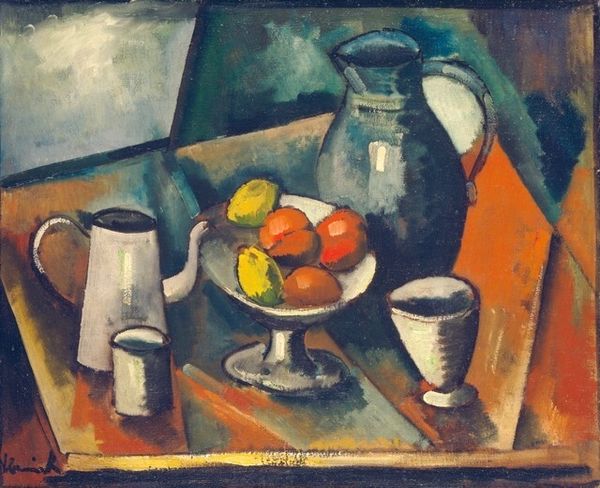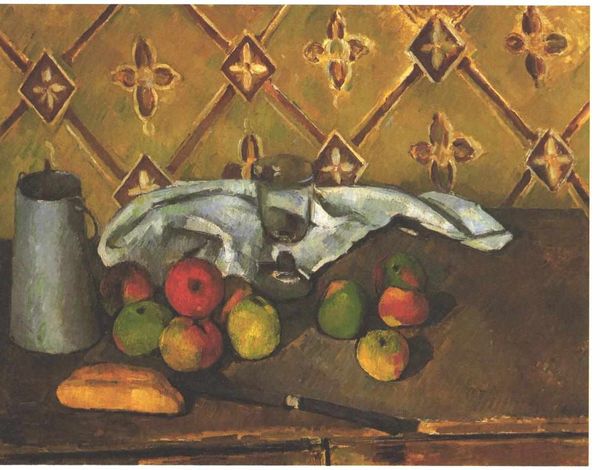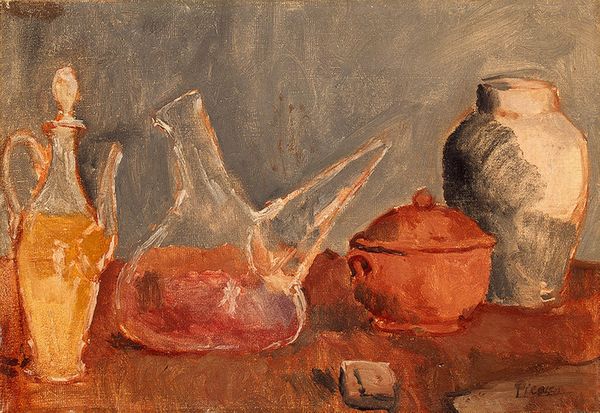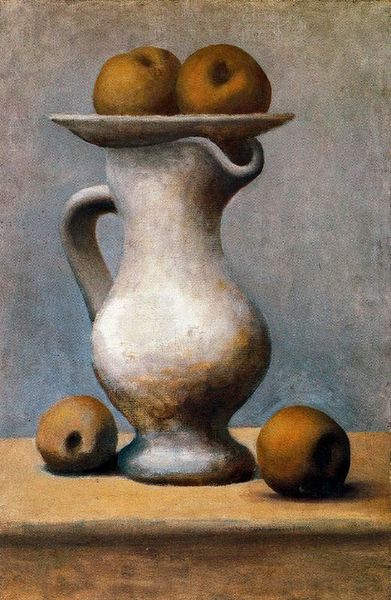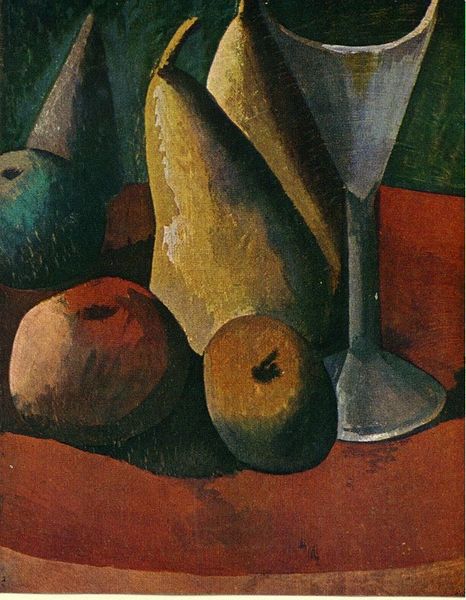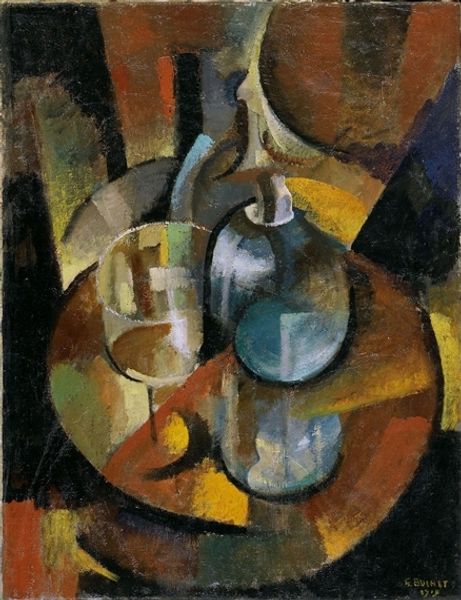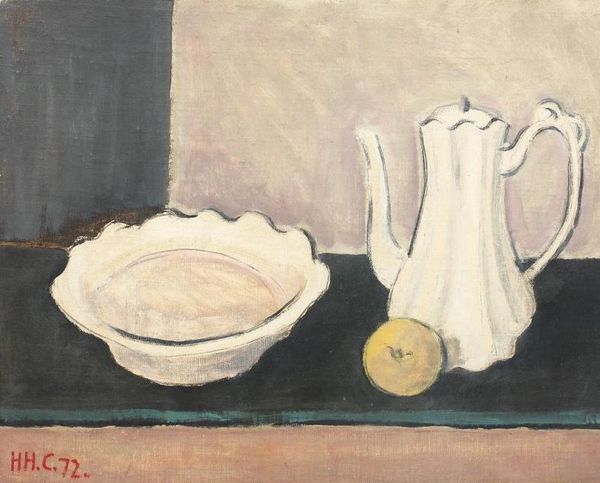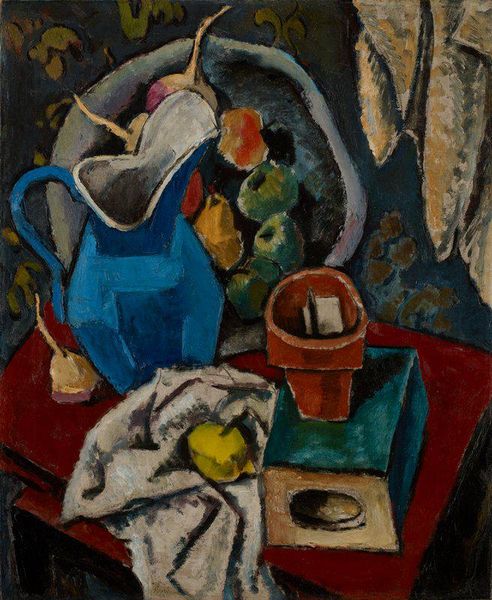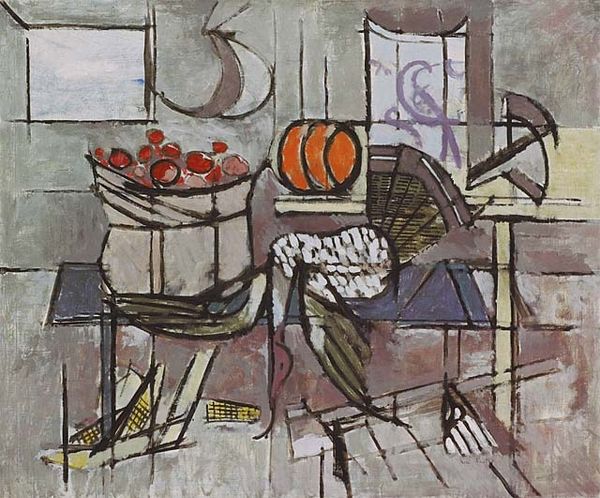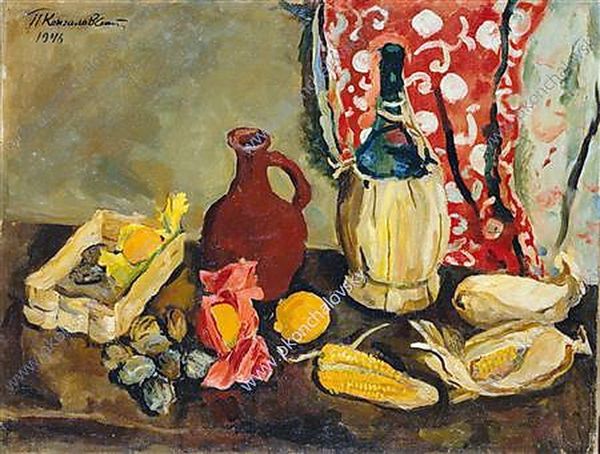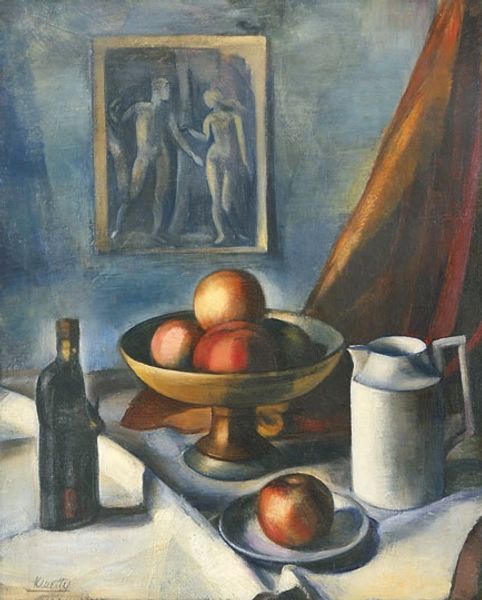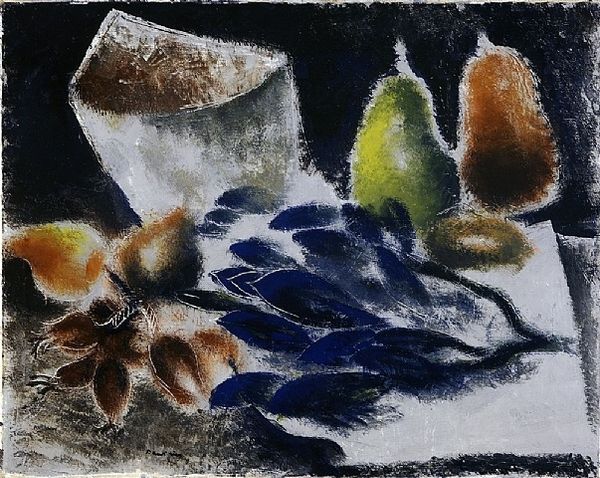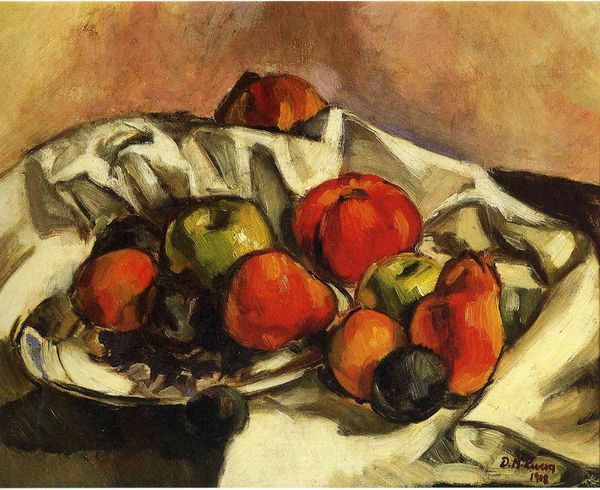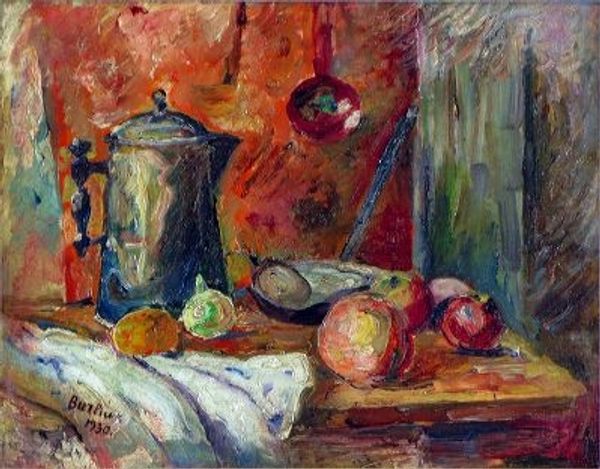
oil-paint
#
still-life
#
oil-paint
#
oil painting
#
modernism
Copyright: Jean Fautrier,Fair Use
Curator: Well, it’s certainly muted. The palette of browns and grays gives it a rather somber feel. What do you think? Editor: You're right, it's understated. But look closer. What might appear bleak at first glance reveals a story about resilience. Curator: Tell me more. Editor: We're standing before "Nature morte aux oignons", painted in 1926 by Jean Fautrier. In English that’s "Still Life with Onions." Executed in oil paint, it captures a humble arrangement. Curator: Humble is the word. Onions. Not exactly the stuff of royal portraits, is it? Although, even everyday objects have held significant symbolic weight throughout art history. Onions often represent simplicity, eternity. But also bitterness and tears. Perhaps a reflection of the post-war period? Editor: The knife suggests that these onions are for consumption, for nourishment, a commentary on the essential nature of existence. Fautrier was living and working in Paris. There's this rise in interest for social realist themes—looking at common people’s lives. Curator: And there’s definitely a sense of Modernism in the work’s starkness. The raw brushstrokes and lack of detail leave much to the imagination. It invites the viewer to complete the narrative, to feel the textures, the scent of the earth clinging to those roots. What story is Fautrier trying to reveal here? The knife suggests that there’s almost this brutality juxtaposed with this vulnerability. Editor: It's in line with the times. Looking beyond academic circles and engaging directly with everyday scenes and struggles. I imagine the composition resonated deeply within its initial social context. Food, sustenance, basic resources were anything but ordinary. Curator: Exactly! These mundane objects can tell grand stories if you are looking at the history of ordinary things and the weight of memory attached to food as culture. The history of nourishment. It is not an uncommon theme to use symbolic food to demonstrate our historical attachment to nature, time, and space. I agree that it tells an important story for the present! Editor: Precisely. Next time you are chopping an onion in the kitchen, remember there is a rich cultural meaning. Curator: Well put. Let's move on.
Comments
No comments
Be the first to comment and join the conversation on the ultimate creative platform.
